Salt Works in Our Favor, But Sugar Doesn’t (The Salt Fix, Part 2 Book Review)
Salt, salt, and…. more salt!
If you’ve been reading along in The Salt Fix for our Hip2Keto Book Club this month, you’ve probably had a few jaw-dropping moments as Dr. James DiNicolantonio uncovers the REAL truth about salt.
In our week 1 reading assignment, we were presented with some interesting information about how the media and medical industry have advised us to limit our salt intake, for fear of cardiovascular issues and heart disease. Many of us have taken this advice and carefully watched our salt intake, but now we’re learning that salt isn’t really the culprit of heart disease and there’s plenty of research to back it up.
I was so eager to dive into this book because I’m a salt fanatic, and my mom, on the other hand, has high blood pressure and avoids salt at all costs. I had to get to the bottom of this whole salt is bad/salt is good controversy!
Here’s a summary of what we learned from The Salt Fix chapters 4-6:
In our week 2 reading assignment, The Salt Fix explains what really causes heart disease and we get a glimpse of how much salt different cultures consume and how it might affect their vitality. Believe it or not, high-salt-eating countries have some of the longest life expectancies in the world. Pretty crazy, right?! But not quite as crazy as what a low-salt diet can do to your body.
Without a sufficient amount of salt, arteries can become constricted and our body will retain more water and salt, which greatly affects the systems that control blood pressure and heart rate. In a nutshell, low salt intake can cause the very health problems that we’ve been told it would prevent and it can aid in weight loss more than you’d think.
What CAUSES salt sensitivity is where the problem lies, not salt intake.
As we read further into The Salt Fix, we learn some not-so-surprising information: sugar is the dirty white crystal at the root of hypertension and kidney damage, not salt. For centuries, leading medical experts didn’t think this was worth mentioning to the public, so unknowingly, we kept consuming low-salt diets that can lead to:
- Nonalcoholic fatty liver disease
- insulin resistance and hypoglycemia
- Cellular dehydration
- Metabolic damage
- Increased blood viscosity
- Increased risk of hypertension
- Increased anxiety
“Salt is one of our five innate taste sensations.”
Chapter 6 of the book introduces us to our built-in “salt thermostat” that is essentially programmed to tell us how much salt our bodies need. Unlike sugar cravings that are brought on by psychological cravings (which are brought on by low blood sugar), salt cravings come from our body’s inherent need for it.
It’s no surprise that our bodies need absolutely zero sugar to survive and it’s up to us to be more intuitive about our salt intake. Just like our natural thirst for water, our body essentially thirsts for a certain amount of salt.
Salt isn’t just an essential nutrient, it’s a tool that can be used to curb sugar cravings and addiction. If you knew that sugar caused a number of the same setbacks that addictive drugs cause, I have a feeling you’d be reaching for the salt shaker a lot more.
Fortunately, Dr. James DiNicolantonio gives us a treatment strategy to manage severe sugar addiction and get our bodies on a path to recovery.
Here are our key takeaways from The Salt Fix, chapters 4-6 that you’ll want to remember:
“Looking at the population data, it’s clear that high-salt diets don’t seem to cause strokes and heart attacks. If anything, we see that high-salt intakes lower the risk of cardiovascular disease and premature death.”
“Among those with hypertension, roughly 75% are not sensitive to salt, and among those with full-blown hypertension, about 55% are immune to salt’s effects on blood pressure.”
“When salt intake is severely limited, the body begins to activate rescue systems that avidly try to retain more salt and water from the diet.”
“Demonizing sodium is not only unsupported by evidence but is counter-physiological as well, as it ignores sodium’s most basic function in mammalian bodies.”
“Our government and health agencies have misinformed us about the supposed benefits of salt restriction; they have globalized an effect that had proven useful to only a small handful of people.”
“A low-salt diet indicates a crisis for the body, not a recipe for optimal health.”
“Whatever defect causes salt sensitivity in humans was the problem and not salt intake per se.”
“Hiding in plain sight throughout this entire controversy? Insulin resistance and diabetes, both consistently found to coincide with both salt sensitive and high natriuretic hormone levels.”
“Up to 80% of people with essential hypertension had been found to have insulin resistance.”
“Low-salt diets have been found to compromise kidney function, decrease HDL (“good” cholesterol), and reduce adiponectin, a substance released by fat cells thought to improve insulin sensitivity.”
“It’s no surprise that sugar triggers an internal chain of events that negatively affects our waistlines and our health. But what we’re just starting to realize is how a low salt intake can produce similar physiological effects.”
“Getting enough salt can also help you get a grip on your sugar cravings and maintain an appropriate fluid balance in your body, which will help with proper metabolic function.”
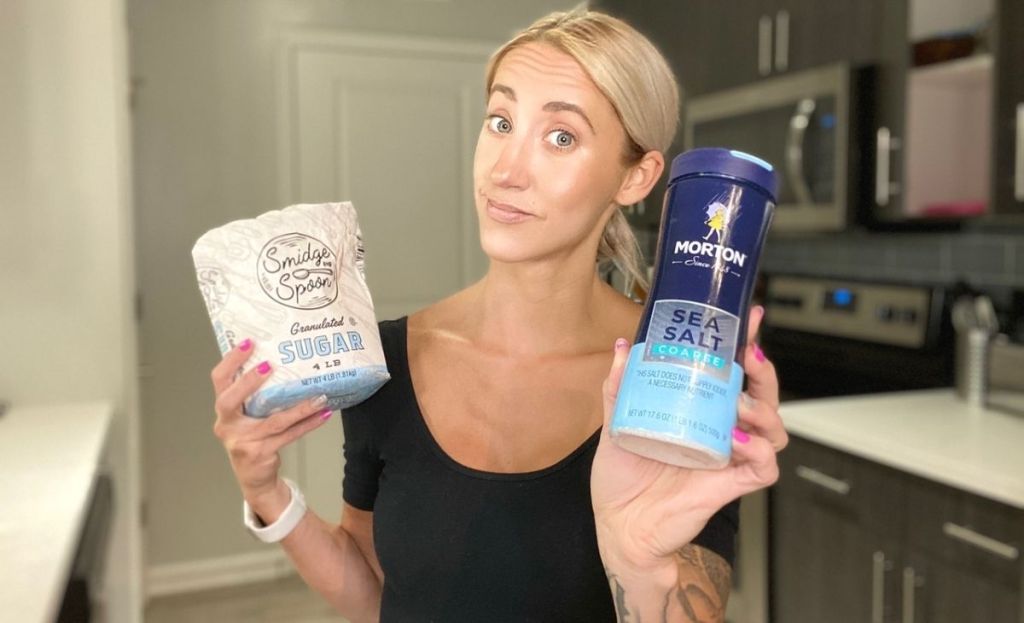
Dr. James DiNicolantonio closes chapter 6 with an impactful statement:
“As important as it is to increase salt to prevent internal starvation, it’s even more important to avoid sugar.”
If you’ve been eating a keto diet, you probably already knew this, but it’s a good reminder of WHY we should be so conscientious about what we feed our body and really listen to what it needs.
This next chapter of The Salt Fix is going to be GOOD!
Week 3
Chapter 7: How Much Salt Do You Really Need?
We’re halfway through The Salt Fix and this next chapter is one you won’t want to miss. If you’re a speed reader, you can still catch up and discuss all of the mind-blowing information we’re learning with our Hip2Keto community!
As always, let us know what you thought about these chapters in the comment section below and chat with other Hip2Keto readers about your biggest takeaways.
Need a copy of The Salt Fix book?
Grab The Salt Fix hardcover, Kindle version, or audible version of the book to read along with us!

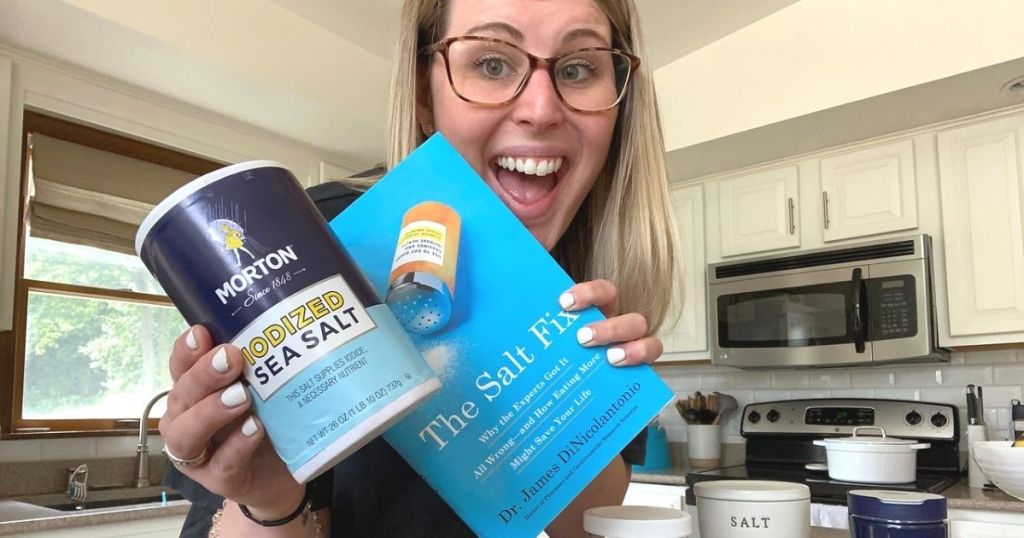
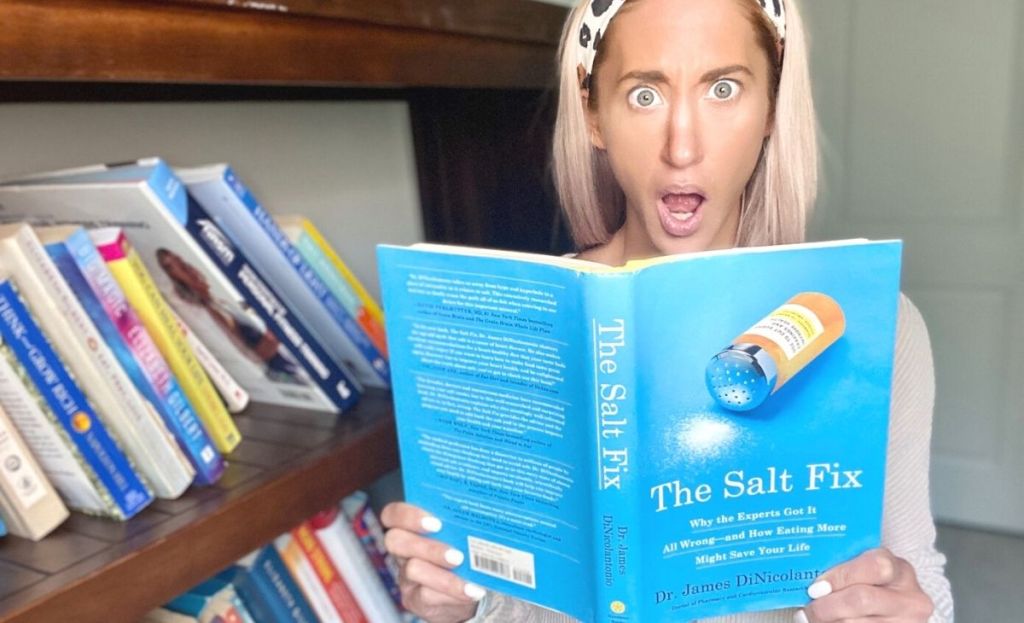
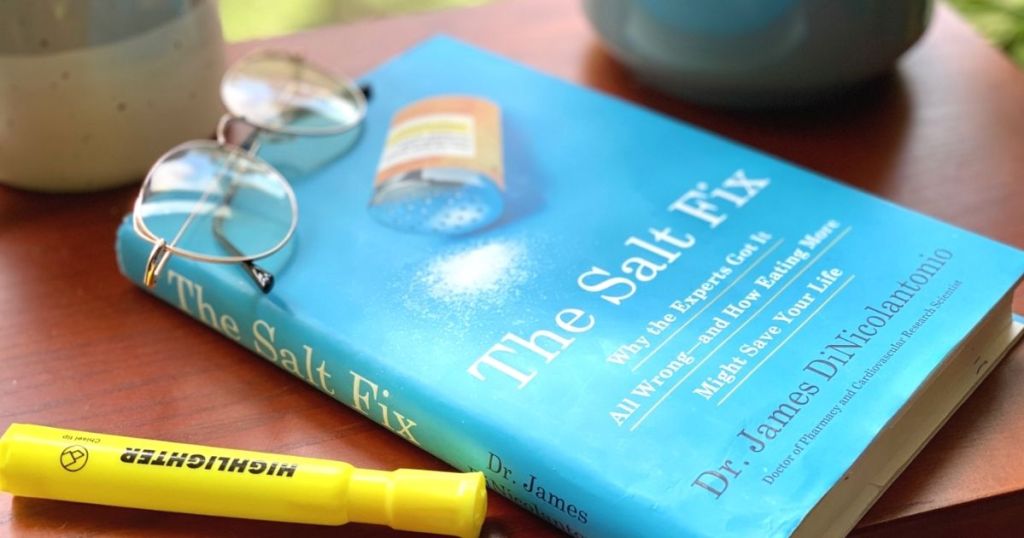
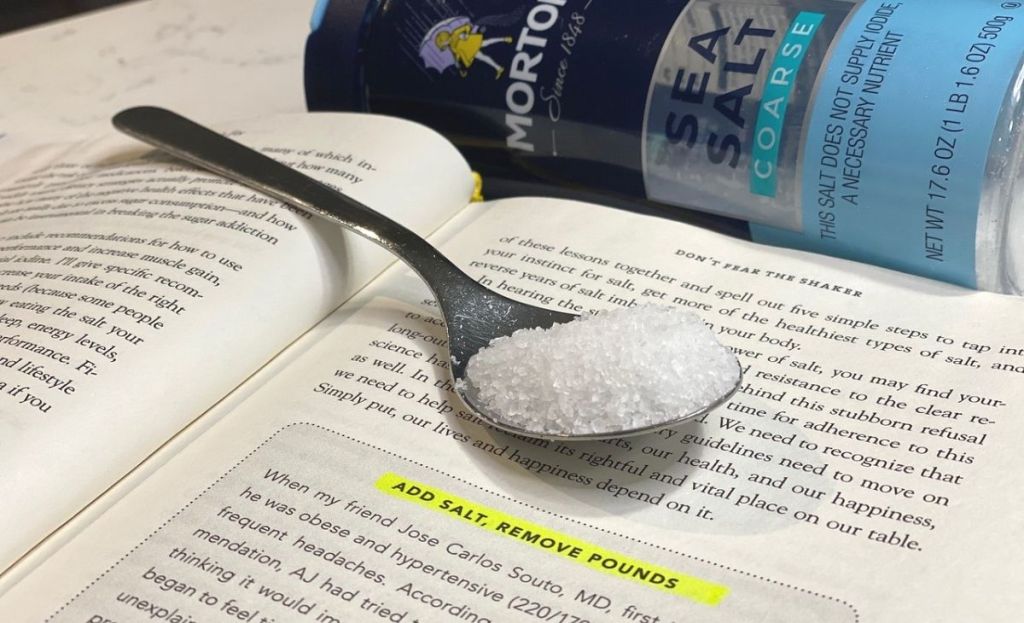
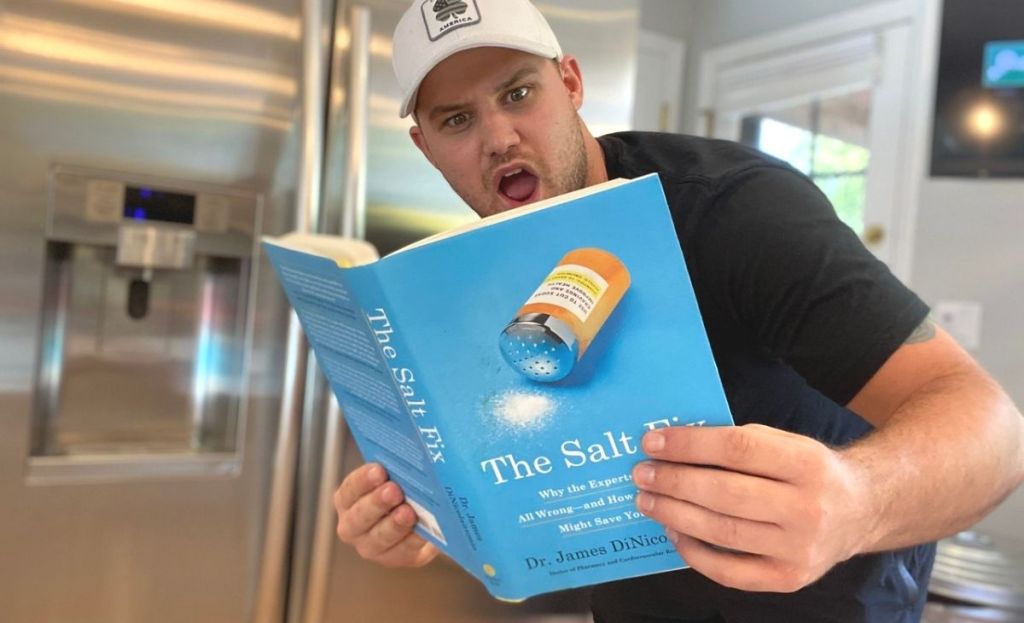
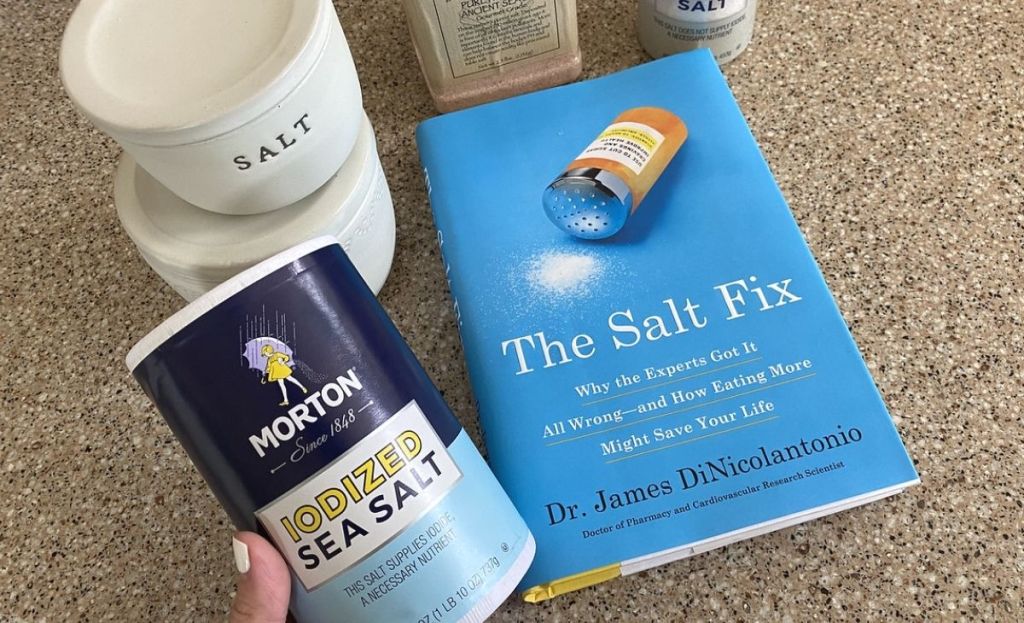
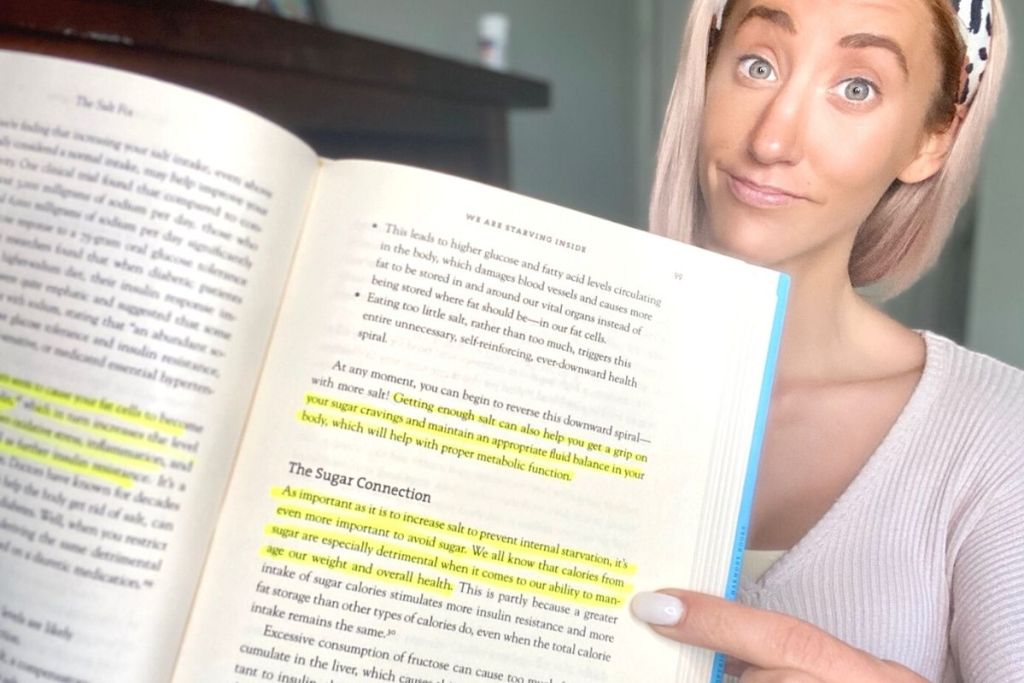
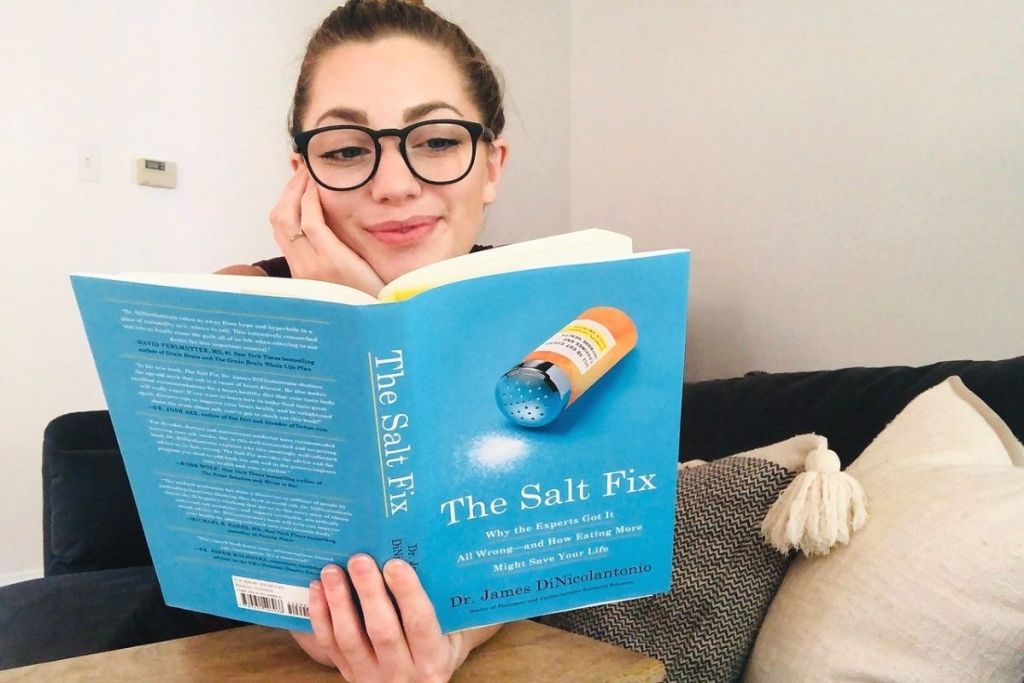
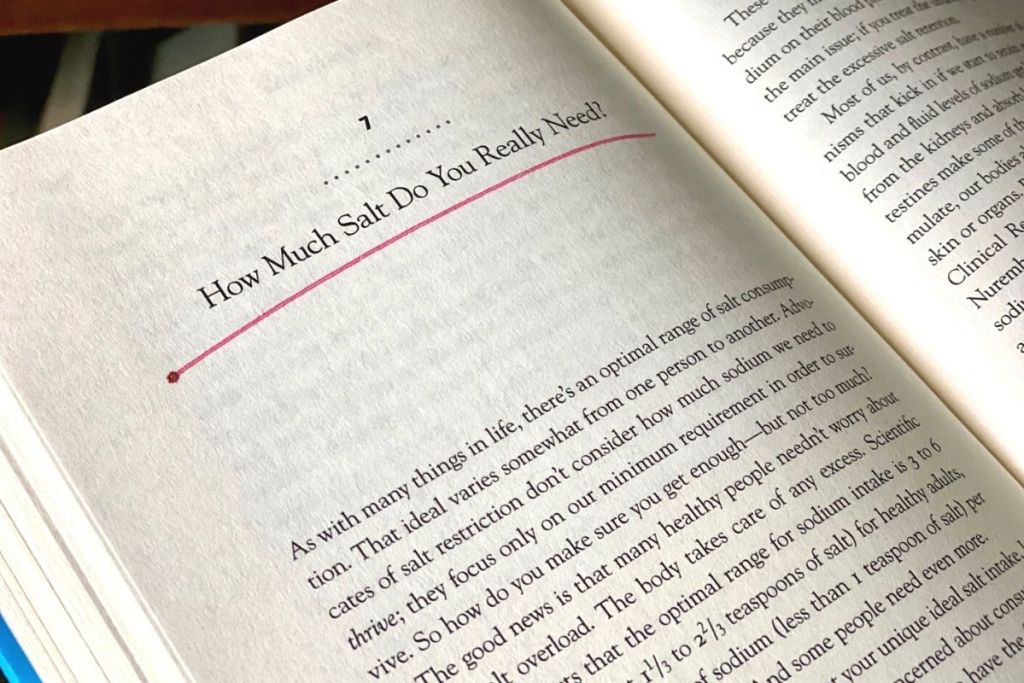



Comments 0